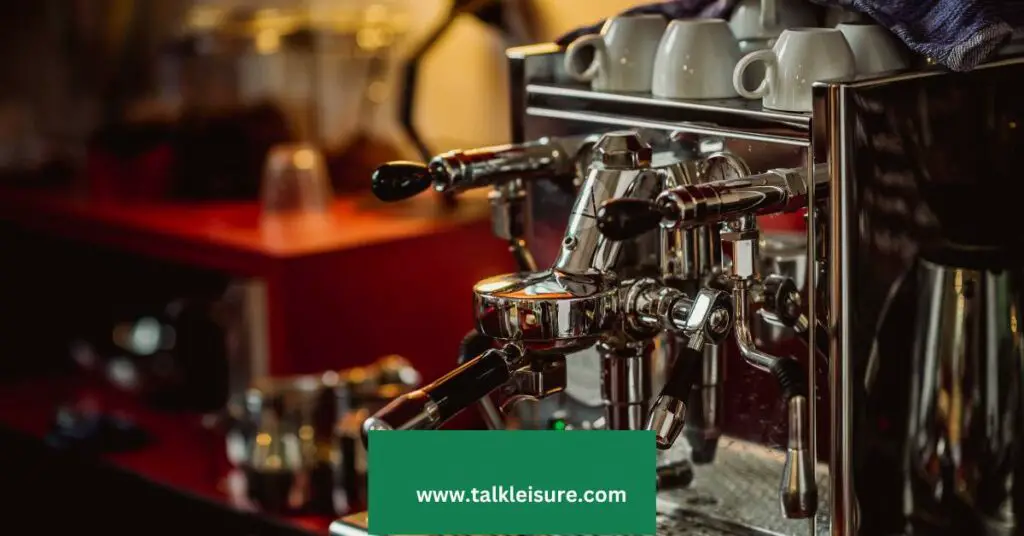Are you passionate about coffee and love to teach others? If yes, then becoming a barista trainer at Starbucks could be the perfect career choice for you! In this blog post, we will guide you through the steps that you need to take to become a barista trainer at Starbucks.
To become a barista trainer at Starbucks, you need experience working as a barista, strong teaching and coaching skills, and the completion of the barista trainer training program. Continuously developing your skills and knowledge is also important.
What is a Barista Trainer at Starbucks?

A barista trainer at Starbucks is responsible for providing both initial and ongoing training to new and existing baristas.
The training programs cover a wide range of topics, including coffee preparation, equipment operation, customer service, and hygiene and safety standards.
As a barista trainer, you will work closely with new baristas to ensure that they are equipped with the skills and knowledge necessary to provide high-quality coffee and exceptional customer service.
You will also provide ongoing training and development for current baristas, helping them to improve their skills and stay up-to-date with the latest trends and technologies in the coffee industry.
In addition to training, a barista trainer at Starbucks is also responsible for assessing the performance of baristas and providing feedback and coaching to help them improve their skills and meet the high standards of Starbucks.
You will work closely with store managers to ensure that all baristas are trained and performing at the highest level possible.
Overall, the role of a barista trainer at Starbucks is essential to the success of the company.
By ensuring that all baristas are properly trained and equipped with the necessary skills and knowledge, barista trainers help to maintain the high-quality standards that Starbucks is known for.
Meet the Qualifications

Current Starbucks Barista
To become a barista trainer at Starbucks, you must first be a current Starbucks barista.
This means that you must have experience working in a Starbucks store and have a thorough understanding of the company’s values and standards.
One Year of Experience
To be considered for the role of a barista trainer, you must have at least one year of experience working as a barista at Starbucks.
This experience will ensure that you have a solid understanding of the company’s policies and procedures, as well as the skills and knowledge necessary to train new and existing baristas.
Passion for Coffee
As a barista trainer, you will be responsible for instilling a passion for coffee in new and existing baristas.
Therefore, it is essential that you have a deep love and appreciation for coffee and the coffee industry.
Strong Communication and Teaching Skills
To be an effective barista trainer, you must have excellent communication and teaching skills.
You must be able to communicate complex concepts in a clear and concise manner and be able to adapt your teaching style to meet the needs of different learners.
High Standards
As a barista trainer, you must hold yourself and others to high standards.
You must be able to identify areas for improvement and provide constructive feedback to help baristas achieve their full potential.
Gain Experience and Build Your Skills

To become a barista trainer at Starbucks, you must first gain experience working as a barista at Starbucks.
Attend training sessions and workshops provided by Starbucks to deepen your understanding of coffee preparation, equipment operation, customer service, and hygiene and safety standards. Seek feedback and coaching from your peers and supervisors to identify areas for improvement and work on developing your skills.
Attend coffee festivals, conferences, and workshops to learn from industry experts and stay up-to-date with the latest trends and technologies in the coffee industry.
Finally, work on developing your communication and teaching skills by practicing with friends and family or by volunteering to teach at a local coffee shop or community center.
By following these steps and always striving to improve your skills and knowledge of the coffee industry, you can become a successful barista trainer at Starbucks.
Apply for the Role
1. Check out the Starbucks Careers Website: Start by checking the Starbucks Careers website for any open barista trainer positions in your area. If there aren’t any positions currently available, consider setting up a job alert to be notified when new positions become available.
2. Update Your Resume and Cover Letter: Make sure your resume and cover letter highlight your relevant experience and skills, such as your experience as a Starbucks barista, teaching or training experience, and strong communication skills.
3. Prepare for the Interview: Prepare for the interview by researching the company’s values and standards, as well as the responsibilities of the barista trainer role. Think about examples of times when you’ve provided coaching or training to others, and be prepared to answer questions about your passion for coffee and your teaching philosophy.
4. Demonstrate Your Skills: During the interview, be sure to demonstrate your skills and knowledge of the coffee industry. You can do this by discussing your experience as a Starbucks barista, sharing examples of times when you’ve provided coaching or training to others, and demonstrating your passion for coffee and teaching.
5. Follow Up: After the interview, be sure to follow up with a thank-you note or email, reiterating your interest in the role and your excitement about the opportunity to join the Starbucks team as a barista trainer.
By following these steps and demonstrating your skills and passion for coffee and teaching, you can increase your chances of landing the role of a barista trainer at Starbucks. Good luck!
Complete the Training Program

The barista trainer training program at Starbucks is designed to provide comprehensive training on the Starbucks brand, culture, and values, as well as on coffee knowledge, equipment operation, coaching and teaching techniques, and more.
The program includes both online and in-person training sessions, as well as on-the-job training, to ensure that you have the skills and knowledge necessary to succeed as a barista trainer.
During the training program, you’ll work closely with experienced trainers and mentors, who will provide guidance and support as you develop your skills.
You’ll also have the opportunity to practice coaching and teaching techniques with other trainees, as well as with real Starbucks baristas.
To complete the training program, you’ll need to meet certain performance standards and pass assessments that demonstrate your knowledge and skills.
Once you’ve completed the program, you’ll be ready to start training new baristas and helping them develop their skills and knowledge of the coffee industry.
Overall, completing the training program is an essential step towards becoming a successful barista trainer at Starbucks.
By investing the time and effort into completing the program, you’ll be better equipped to provide high-quality training to new baristas, and help them become skilled and knowledgeable members of the Starbucks team.
Continuously Develop Your Skills

As a barista trainer at Starbucks, it’s important to continuously develop your skills and knowledge to stay up-to-date with the latest trends and best practices in the coffee industry.
One way to do this is by attending advanced training sessions and workshops offered by Starbucks or other organizations in the industry.
Starbucks offers a variety of advanced training opportunities for barista trainers, such as the Coffee Master program, which provides in-depth training on coffee knowledge, brewing techniques, and food pairings.
Additionally, you may have the opportunity to attend training sessions on leadership and coaching, which can help you improve your skills as a trainer and mentor.
Outside of Starbucks, there are many resources available for barista trainers who want to continue learning and developing their skills.
For example, the Specialty Coffee Association offers a variety of training and certification programs for coffee professionals, including courses on brewing, roasting, sensory analysis, and more.
In addition to attending training sessions and workshops, it’s important to stay up-to-date with industry news and trends by reading coffee industry publications and following thought leaders on social media.
This can help you stay informed about new products and techniques, as well as new research and developments in the industry.
By continuously developing your skills and knowledge, you’ll be better equipped to provide high-quality training to new baristas, and help them become skilled and knowledgeable members of the Starbucks team.
The coffee business may also offer new opportunities for career growth and advancement if you make an investment in your own development.
Conclusion

Becoming a barista trainer at Starbucks can be a rewarding and fulfilling career path for those who are passionate about coffee and teaching.
By following the steps outlined in this article, including gaining experience as a barista, building your teaching skills, and completing the barista trainer training program, you can become a successful barista trainer at Starbucks.
It’s important to remember that the learning doesn’t stop once you become a barista trainer. Continuously developing your skills and knowledge through advanced training sessions, industry research, and staying up-to-date with trends can help you become a better trainer and mentor to new baristas.
As a barista trainer, you’ll have the opportunity to help new baristas develop their skills and knowledge of the coffee industry, and potentially advance their careers within Starbucks or the wider coffee industry.
Working for a respected company like Starbucks can provide valuable experience and connections that may open up new opportunities in the future.
FAQS
What qualifications do I need?
Experience as a barista and strong teaching skills are important. No specific educational qualifications are required.
How long does it take?
This can vary, but generally, several years of experience as a barista are followed by several months of training as a barista trainer.
What are the benefits?
Building a career in the coffee industry, developing teaching skills, creating opportunities for advancement, and having the ability to help new baristas develop their skills and knowledge.












